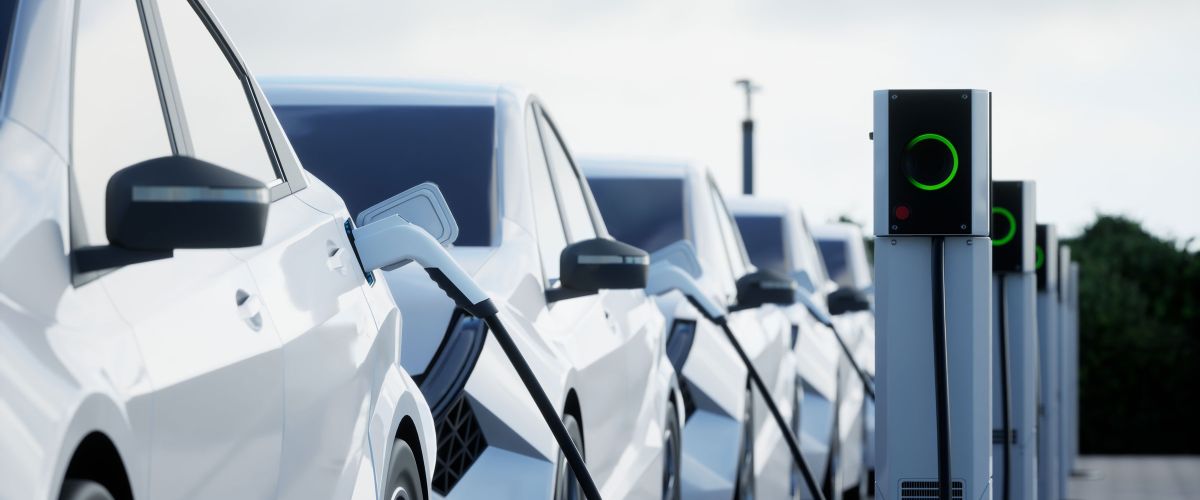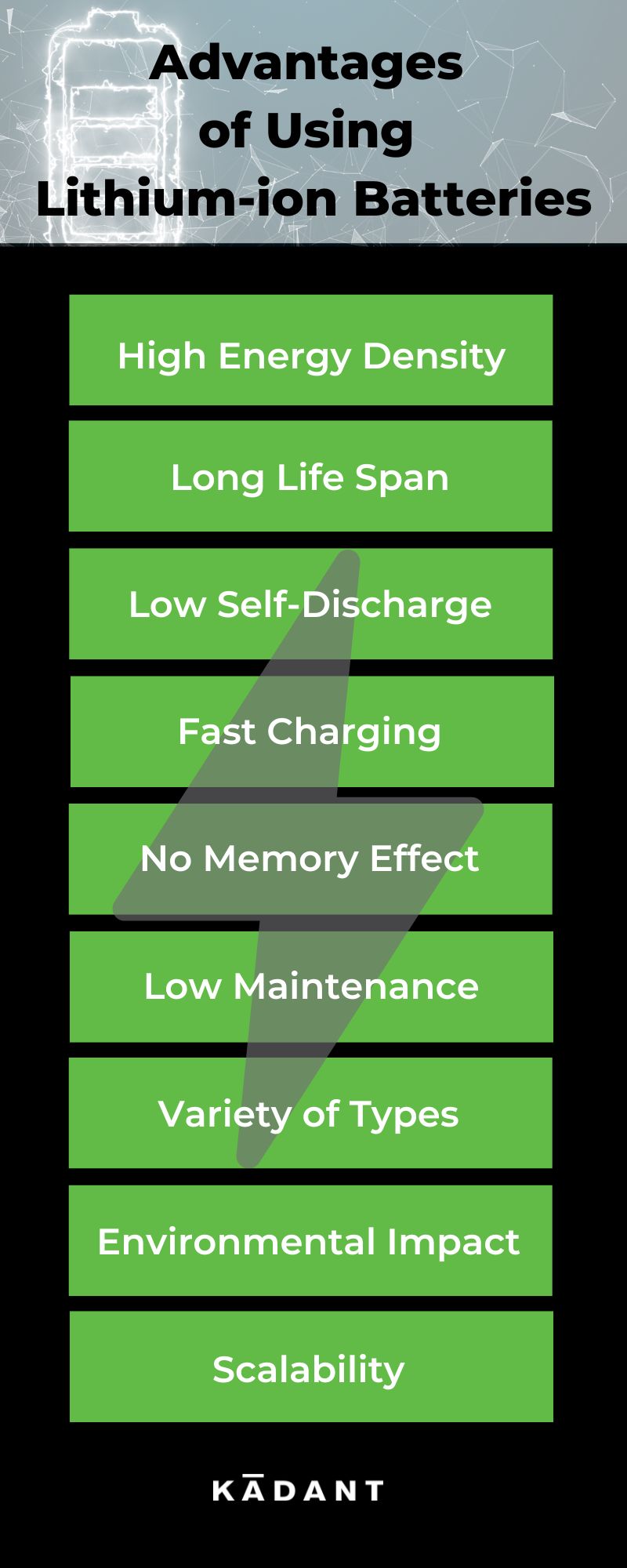
What Are the Advantages of Using Lithium-Ion Batteries?
Lithium-ion batteries have become integral to modern technology, powering everything from portable electronics to electric vehicles. These batteries offer substantial advantages including rapid charging capabilities, low self-discharge rates, and minimal maintenance, making them highly appealing for a wide range of applications. Lithium-ion batteries are favored in many applications for several advantages including the following list.
 1. High Energy Density
1. High Energy Density
One of the most notable advantages of lithium-ion batteries is their high energy density. They can store more energy per unit of weight than most other types of batteries, making them ideal for portable electronics and electric vehicles where weight and space savings are crucial.
2. Long Lifespan
Lithium-ion batteries typically have a long lifespan and can handle hundreds to thousands of charge/discharge cycles before their capacity falls below 80%. This durability makes them suitable for applications like electric vehicles and renewable energy systems, where frequent charging and discharging occur.
3. Low Self-Discharge
Compared to other rechargeable batteries, lithium-ion batteries have a relatively low self-discharge rate. This means they lose their charge slowly when not in use, enhancing their suitability for use in devices that need to maintain charge over extended periods of non-use.
4. Fast Charging
Lithium-ion batteries can be recharged much faster than other battery types. This feature is especially beneficial for use in consumer electronics and electric vehicles, where quick recharge capabilities are essential.
5. No Memory Effect
Unlike nickel-cadmium (Ni-Cd), lithium-ion batteries do not suffer from the "memory effect," where repeated partial discharge/charge cycles can cause a battery to lose its maximum energy capacity. This allows users to recharge lithium-ion batteries without waiting for them to fully discharge, without worrying about long-term capacity loss.
6. Low Maintenance
Lithium-ion batteries require little to no maintenance, a significant advantage over batteries like Ni-Cd, which require periodic discharging to avoid memory effects. The advantage of low maintenance is the reduction in the lifetime cost and effort in using a lithium-ion battery.
7. Variety of Types
There are several types of lithium-ion batteries available, offering different chemistries that provide various balances of power, energy density, and safety to suit different applications. For instance, lithium iron phosphate (LiFePO4) batteries offer longer lifespans and better thermal stability, while lithium cobalt oxide (LiCoO2) batteries provide higher energy density.
8. Environmental Impact
Lithium-ion batteries often have a smaller environmental impact than other battery types due to their longer lifespans and absence of heavy metals like lead and cadmium, which are toxic and require special handling during disposal.
9. Scalability
The technology is scalable from very small batteries for devices like hearing aids and watches, up to large systems used for electric vehicle power and grid energy storage. This versatility makes lithium-ion batteries adaptable to a wide range of applications.
Lithium-ion batteries are popular because they have many advantages: they store a lot of energy, last a long time, and can be made in various sizes and shapes. As technology keeps improving, these batteries will be used in even more ways and will work even better, making them an essential part of modern technology.
The calendering process in the lithium-ion battery manufacturing is where Kadant’s roll cleaning technology improves production and the end product. The VeriLite™ roll cleaner assembly is a unique, compact, continuous roll cleaner to keep the calender rolls free of contaminates called the. Check out the article, “Kadant Solutions Plays a Critical Role in Lithium-ion Battery Production,” to learn more about our role in lithium-ion battery manufacturing.
Resources
- Lithium-Ion Battery. (2020). Clean Energy Institute; University of Washington.
- ECOFLOW. (2023, March 8). LiFePO4 vs. Lithium Ion Batteries: What’s the Best Choice for You? EcoFlow US Blog.
Related Articles
Tagged with
Author
Share
Let’s Connect
Connect with Kadant Solutions Division on LinkedIn to learn more about our employees, products, and services.
